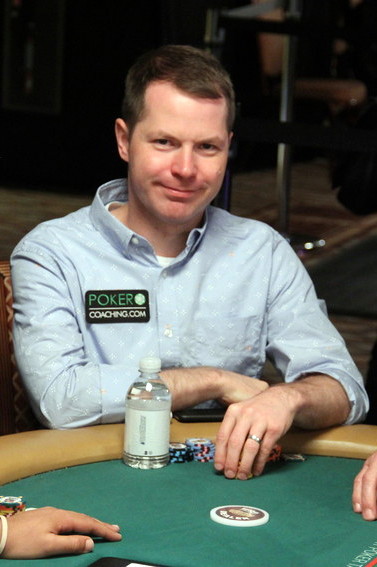






Stop Limping With Junk!by Jonathan Little | Published: Nov 29, 2023 |
|
|

Jonathan Little
Before the flop, many recreational players limp (just call the big blind) far too often. They limp because they want to see if they flop a strong hand before deciding if they have a hand that is worth investing significant money.
In reality, the vast majority of hold’em hands will rarely flop a strong enough holding to justify risking additional chips, resulting in their frequent limps consistently losing small amounts of money.
The best hands (strong pairs and big cards) are obviously worth playing, but many players limp with a wide range of speculative hands.
When many players see the flop (as will often be the case in small-stakes games), you need an incredibly strong hand to justify continuing because it is highly likely that someone will flop a premium hand. You will find that middle pair (and sometimes top pair) does not fare too well when lots of players see the flop.
For example, suppose four players limp and you also limp on the button with your 100 big blind effective stack with K 6
6 , 9
, 9 7
7 , or 9
, or 9 3
3 . The blinds also see the flop, which comes J
. The blinds also see the flop, which comes J 9
9 6
6 .
.
If you face a bet with any of these hands (all middle or bottom pairs), you will be in a tough spot. If you call, you may already be in bad shape against a better made hand, and when your opponent happens to be bluffing, many turn cards could easily improve them to a superior hand.
If your opponent continues betting on the turn, you will usually also have to fold, especially if the turn brings a scary card. Also, don’t forget about the two players in the blinds who could easily have you crushed.
If someone bets and someone else calls, you should almost always fold middle or bottom pair unless they have a decent draw to go with them. One mistake many players make is to call and see a multi-way turn.
This is a particularly costly leak because it often does not feel so bad due to the excellent pot odds you are getting. However, when you fail to improve, you will almost always have to fold to a bet, and if you are lucky enough to improve, you may still have the second-best hand or your opponents may not pay you off. If someone bets on the flop and someone else raises, you should make an easy fold.
So, you do not want to play cards that will often flop marginal made hands. This includes hands containing one big card and one little card (Q-4 offsuit), offsuit connected or gapped hands (8-6 offsuit), and junky suited cards (J 6
6 ). These hands are all unplayable in almost every situation, except when you are in the big blind. Of course, hands worse than these should also be folded.
). These hands are all unplayable in almost every situation, except when you are in the big blind. Of course, hands worse than these should also be folded.
I understand that it may be tempting to see the flop with all sorts of junk when everyone else is splashing around, but realize that these players are losing money in the long term to the players who are a bit more patient and wait to play when they have a reasonable edge.
The easiest way to beat players who play far too many hands is to simply start with better hands. Plugging just this one leak will go a long way to making you a much more profitable poker player. Good luck!
When you join the Card Player Poker School (it’s free to join), you’ll also get:
 Jonathan Little is a two-time WPT champion with more than $7 million in live tournament earnings, best-selling author of 15 educational poker books, and 2019 GPI Poker Personality of the Year. If you want to increase your poker skills and learn to crush the games, check out his training site at PokerCoaching.com/cardplayer.
Jonathan Little is a two-time WPT champion with more than $7 million in live tournament earnings, best-selling author of 15 educational poker books, and 2019 GPI Poker Personality of the Year. If you want to increase your poker skills and learn to crush the games, check out his training site at PokerCoaching.com/cardplayer.
Features
Tournaments
Strategy